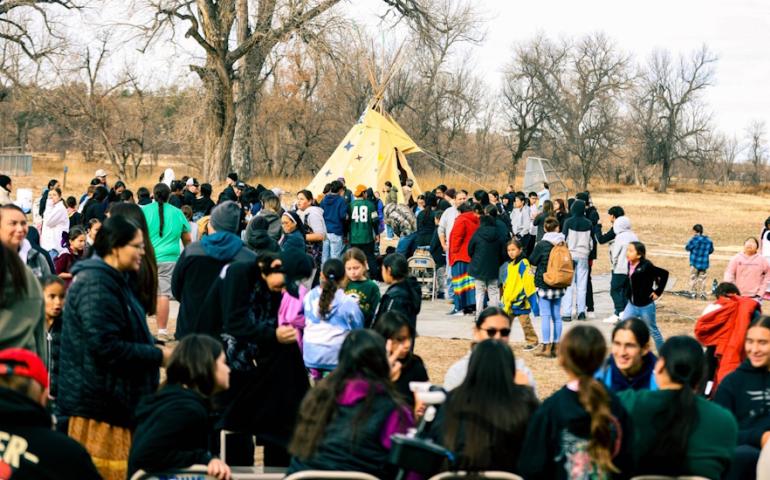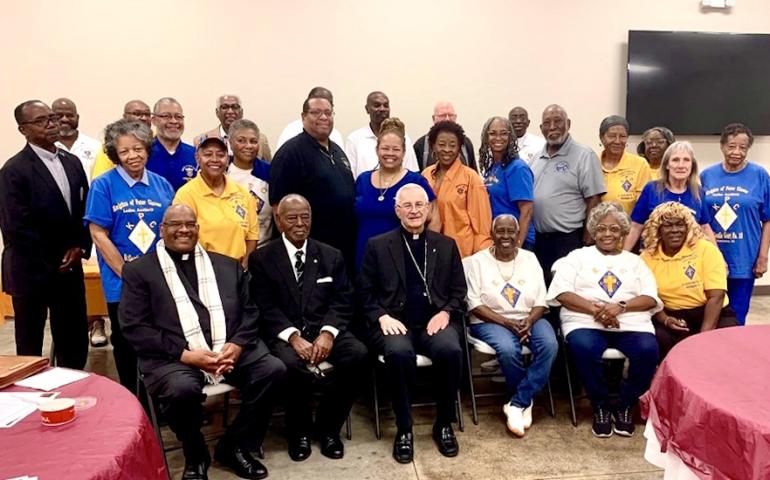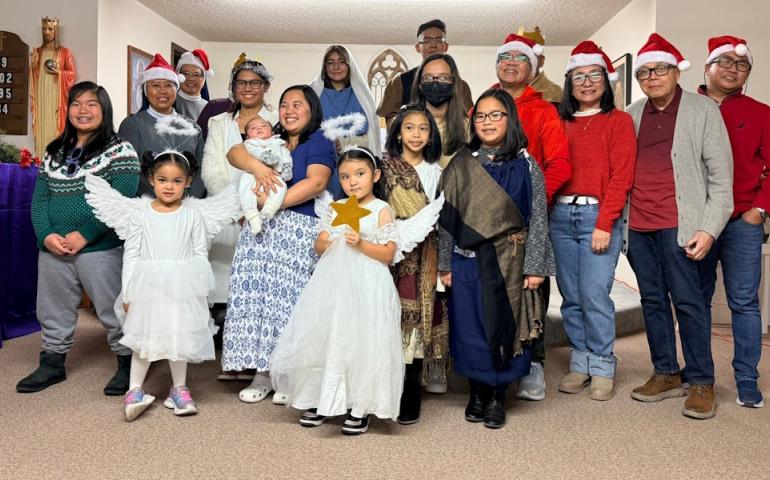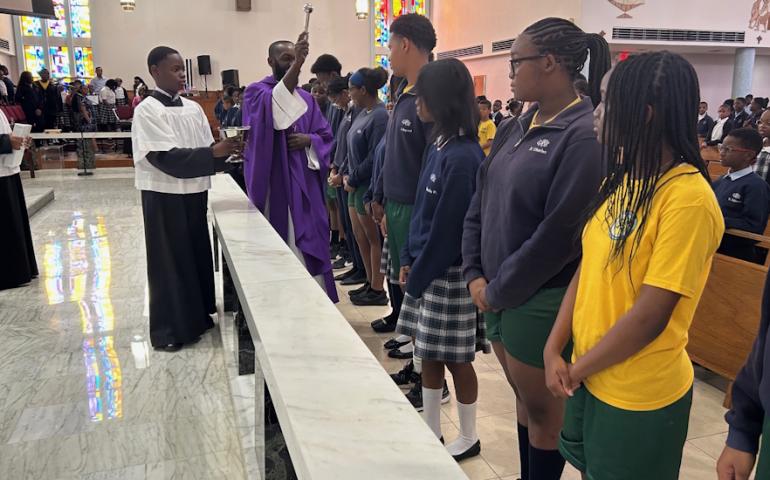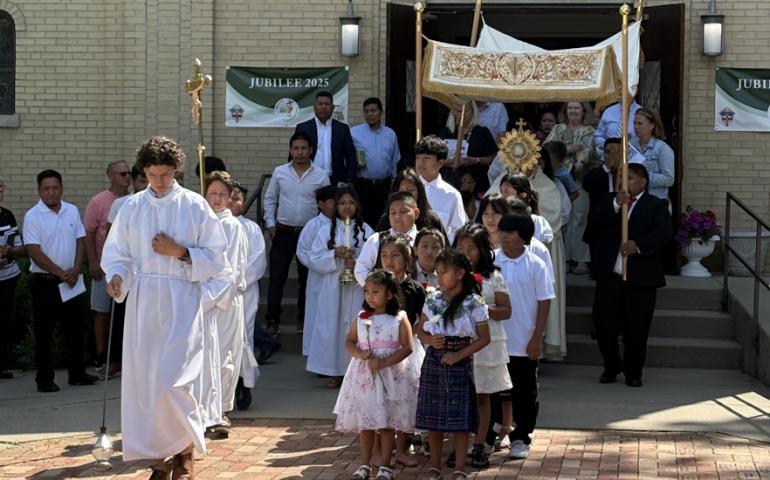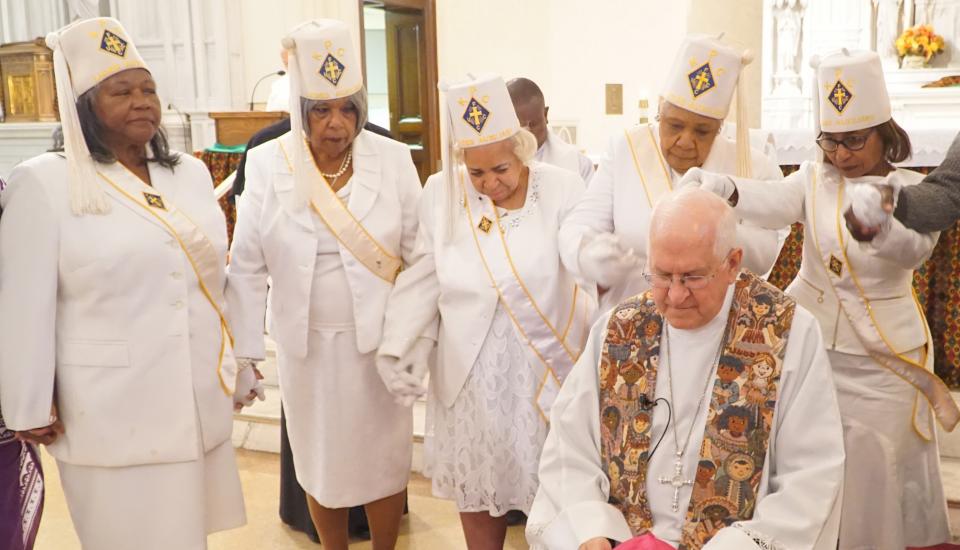
Archdiocese of Louisville
Archbishop Joseph E. Kurtz told a gathering of more than 200 African American Catholics Nov. 9, that this year — which marks the 400th anniversary of the arrival of the first slave in the U.S. — was an “especially important” year to gather. The gathering was the 34th annual African American Catholic Day of Reflection, which took place on the campus of St. Martin de Porres Church on West Broadway. The event was sponsored by the Archdiocese of Louisville’s Office of Multicultural Ministry and Family Ministries, two of the agencies supported by the Catholic Services Appeal. The offices collaborated for the first time to present the annual day of reflection. Archbishop Kurtz, who underwent surgery two days later, presided at a prayer service to start the day. He opened his reflection by telling his listeners that it was good to reflect in “communion” with sons and daughters of God, noting that this year — which marks the 400th anniversary of the start of slavery in the U.S. — was a particularly important time to gather.
“We gather not because there have not been strides made … or joys and hopes. Naturally there are, but there’s also anguish and suffering” he said.
“As you reflect today, you will recall perhaps that because of the color of your skin somebody turned their back on you and you will reflect not only on that event, but you will join yourselves to all others who have had a similar or even worse experience. We’re reflecting in communion.”
Though difficult topics may come up during the day of reflection, the archbishop told his listeners that he hoped they’d also reflect on the “joys and hopes” in their lives.
He also said he hoped the day would lend itself to reflecting on some of the priorities identified in the African American Pastoral Plan, which was presented to him at last year’s day of reflection.
Some of those priorities are:
Leadership — The archbishop said there’s a need for calling forth leaders.
Vocation — There’s also a need for people who are willing to work for the church, he said
not only priests and religious sisters, but lay ecclesial ministers as well. “To work for the church is to work for Christ and to work for Christ is a blessing,” said Archbishop Kurtz.
Combating racism — He said that “combating the sin of racism will take every one of us. The only way you and I are going to be able to truly combat racism, not just in our country and world, but in our community, our families and in our hearts is by being in communion. Seeing how it affects you and knowing that you need to include others in that circle,” he said.
Archbishop Kurtz said he hoped participants leave the event “changed people” as well as “inspired to make room for others” in their hearts.
“In doing that we will be in communion with Jesus Christ and with one another,” he said.
M. Annette Mandley-Turner, executive director of the archdiocese’s Office of Multicultural Ministry — said many who attended the day- long event left feeling hopeful. “They were impressed by the archbishop’s words regarding our five-year plan, social justice and racism,” said Mandley-Turner. Those she heard from said that hearing the archbishop speak about slavery and racism placed a “level of importance” on those difficult issues.
“They saw it as step one. It left many feeling that something else is going to happen to honor and commemorate that anniversary,” said Mandley-Turner.
At the closing of the prayer service, the elder members of St. Martin de Porres, St. Augustine, Christ the King and Immaculate Heart of Mary churches surrounded Archbishop Kurtz with a prayer circle asking for his healing.
The archbishop underwent weeks of treatment for cancer and had surgery on Nov. 11 at the Duke Cancer Institute in North Carolina.
The day also included a keynote address from Father Christopher Rhodes entitled “Rejoice in the Lord Always; Again I will say: Rejoice” based on chapter four of St. Paul’s letter to the Philippians.
In St. Paul’s letter he pleads with Euodia and Syntyche, two followers of Christ, to end the conflict that had divided them and to be of “like mind in the Lord.” Father Rhodes said such conflict goes on in parishes today. The women in St. Paul’s epistle could be co-chairs of a fish-fry or perhaps the chair of the finance committee and a member of the finance council who are not getting along in their work for the church, he said. This conflict can create division and force a congregation to “pick sides.”
“The church is a place you come to build up the kingdom making others all heirs to God’s grace, not a place to condemn people,” said Father Rhodes, pastor of Christ the King, Immaculate Heart of Mary and St. Augustine churches.
“Paul understood that unity and reconciliation build the church, and hate, anger and division tear it down. Paul is simply saying we should be reconciled with each other as children of God before we seek to be reconciled with God our Father,” he said.
In closing, Father Rhodes said, “As we leave, we must examine our conscience and ask our- selves are we truly seeking to build our church and rejoice in the Lord or are we tearing down the church because we failed to be reconciled?” Following Father Rhodes’ address, participants took part in workshops focused on finding purpose in life, marriage and exploring the Bible, among other topics.

